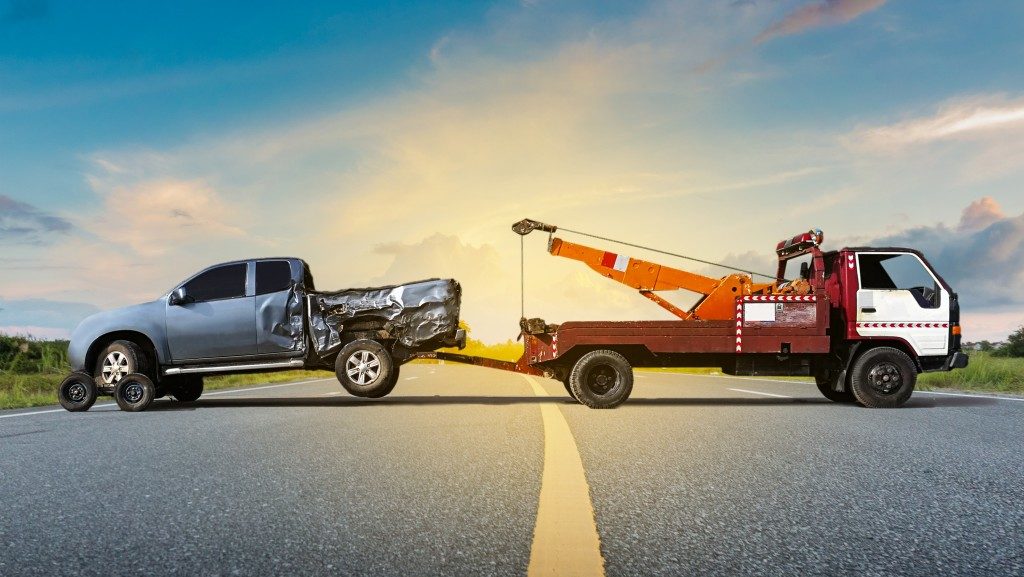As a tow truck driver, you provide an essential service. Helping anyone in need of roadside assistance can be a fulfilling activity that brings variety to your day. If you enjoy going about, solving mechanical problems, and helping others, it certainly beats sitting in the office all day. Still, there are some safety practices every driver in the towing business should observe – here are the fundamentals.
Vehicle maintenance
You may be driving slowly when towing, but you’re also carrying a heavy load. This places a lot more stress on your truck and requires more frequent maintenance over time. A professional driver of any vehicle knows to check the brakes, fluids, and tires. Of course, you’ll want to check those every time, as well as the cooling system, hitching apparatus and chains, wiring, and suspension – everything that has to bear the stress of your additional load.
Besides these, you want to ensure that lights, mirrors, and a light bar on your tow truck are perfectly functional. It’s essential in your job to both see and be seen so that you can go about your business without the hassle and avoid leading to any further accidents.
Personal care and equipment
As the driver, it’s essential to take care of yourself as well. You never know when or where you’ll be called into action; it could be a bright and clear day out on the road, or it could be a foggy evening in inclement weather at a construction site. While wearing a fluorescent vest is mandated by the Federal Highway Administration, you can still gain more visibility and protection with gear such as heavy-duty gloves, steel cap boots, and a reflective hard helmet.
Comfort is vital to any driver, and especially to you. Get the necessary rest each day, keep hydrated, and pay attention to your body – long hours on the road can give you cramps or muscle fatigue. Take breaks when you can, and have an emergency kit handy in your vehicle at all times.

Drive defensively
Road safety is your business as a tow truck driver. Even when you’re heading over to pick up your load, you should always observe defensive driving and stay within speed limits. Pay attention to any detours or traffic signs, especially in construction zones; you never want to be the cause of another road accident.
When bringing a load, remember that your added weight brings mechanical stress; you can’t bring your vehicle to a full stop very quickly. Maintain a reasonable distance from the next car, and slow down.
Follow loading procedures
Loading practices have specific conventions to be observed; emergency lights should be switched on at the approach, and the disabled vehicle should be centered on the bed, chained securely, and its wheels locked. The loading process should be carried out while in a zone of safety, away from traffic. Most importantly, you should never exceed your own vehicle’s cargo weight limit – know your truck’s capacity and when to call in a heavier duty operator for assistance.
Remember, you may also need to perform some minor repairs on the scene. Sometimes, this can be all that’s necessary to get a disabled vehicle off the road. Having the equipment and know-how to perform minor troubleshooting can spare you the effort and trouble of loading in the first place.
There’s a lot more to being a tow truck driver than just hauling cars off the road. Performing regular maintenance and observing safety while you carry out your daily operations will keep the streets safer for everybody.

















